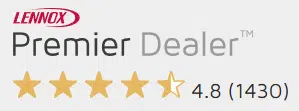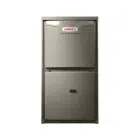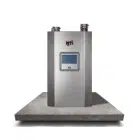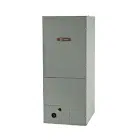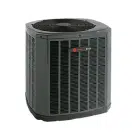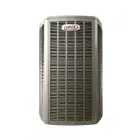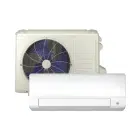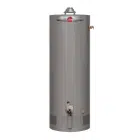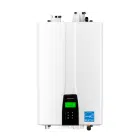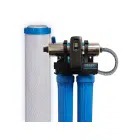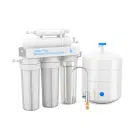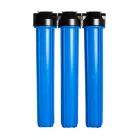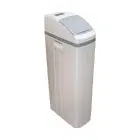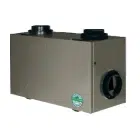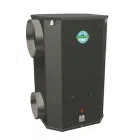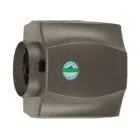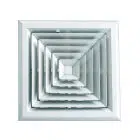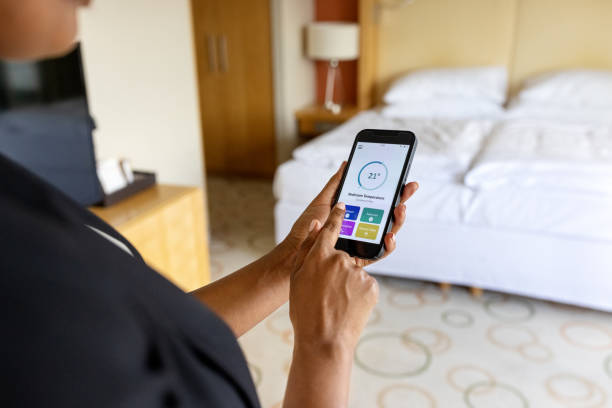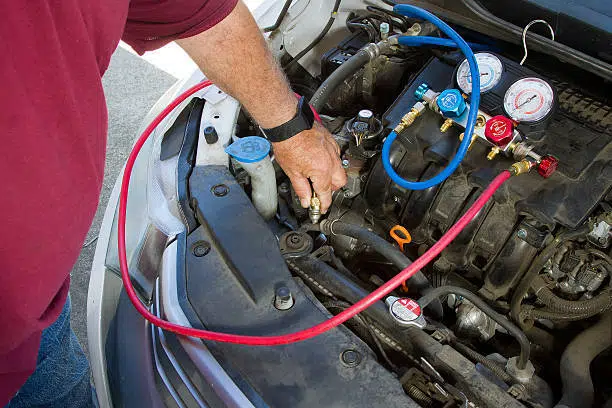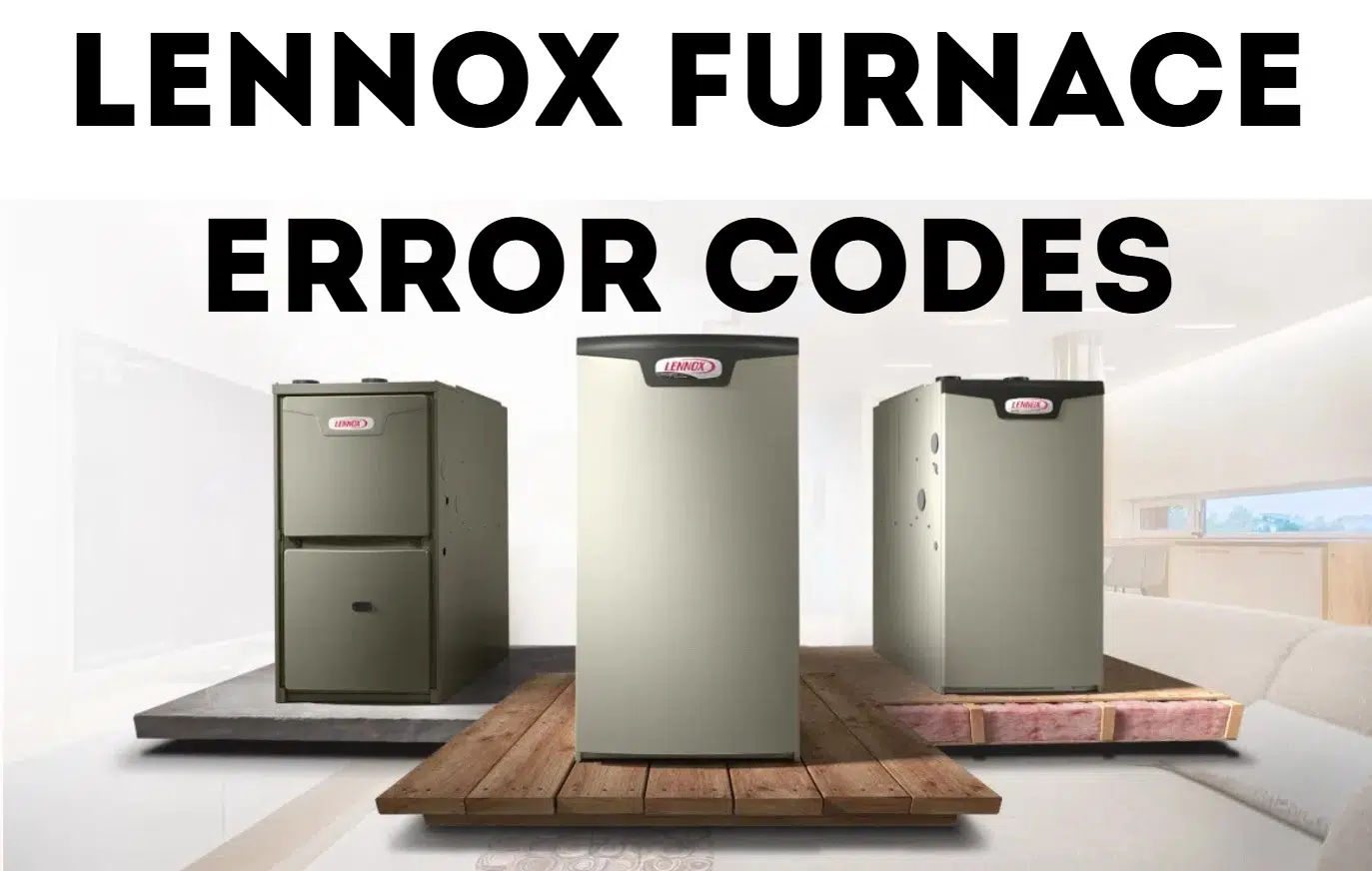
Table of Contents
- My Lennox Furnace Is Blinking Lights
- Error Code E 105: Furnace Communication Breakdown
- Furnace Voltage Issues: E 110, E 111, E 112, and More
- Furnace E 180 Error Code: Outdoor Temperature Sensor Failure
- Gas Valve and Ignition Furnace Errors: E 200-E 207
- Pressure Switch and Flame Errors: E 223-E 240
- Soft Lockouts: E 270-E 275 Lennox Furnace Error Codes
- How to Prevent Lennox Furnace Error Codes
- FAQ
When your Lennox furnace starts acting up, those flashing codes can feel like a cryptic puzzle. If you’re a homeowner trying to decode what’s going wrong, you’ve come to the right place. In this guide, we’ll break down the most common Lennox furnace error codes and provide clear, actionable solutions — no tech-speak or guesswork required.
My Lennox Furnace Is Blinking Lights
Ever noticed your furnace’s indicator light blinking at a steady rhythm? It’s not random — it’s trying to tell you something. Here are the key codes you might see:
- Idle Mode (Decimal Blinks at 1 Hertz): This indicates your system is idle. Nothing to worry about unless it’s stuck in this state for too long.
- Cubic Feet Per Minute (CFM) Codes: These flashes correspond to your indoor blower settings. For example, 1 second ON, 0.5 second OFF indicates airflow is being measured and displayed.
- Heat Pump Stage (Blinking – Ignition): This occurs when the furnace enters its heat pump stage, ready to ignite.
If your furnace seems stuck or erratic, double-check your thermostat settings first. A simple reset might save you a service call.
|
Code
|
Explanation
|
Solution
|
|---|---|---|
|
Idle Mode
|
Indicates system is on standby.
|
Check thermostat and ensure demand is active.
|
|
CFM Codes
|
Signals blower speed and airflow.
|
Verify blower operation; reset if necessary.
|
|
Heat Pump Stage
|
Signals ignition process is starting.
|
Monitor system; call for service if it fails.
|
Error Code E 105: Furnace Communication Breakdown
Error E 105 signals a communication problem between devices on the RS Bus. This means one or more connected devices aren’t talking to each other properly.
Before you panic, take a look at the wiring. Loose or damaged wires are a common culprit. Ensure all connections are snug and secure. If everything checks out and the error persists, it’s time to call in a professional HVAC company.
|
Code
|
Explanation
|
Solution
|
|---|---|---|
|
E 105
|
Communication problem on RS Bus.
|
Check wiring and device connections.
|
If everything checks out and the error persists, it’s time to call in a professional HVAC company. Don’t let communication issues leave you in the cold — HVAC Service Solutions can diagnose and repair the problem for you.
Furnace Voltage Issues: E 110, E 111, E 112, and More
Voltage-related errors are pretty common in Lennox furnaces in Canada. Here’s what they mean:
- E 110 (Low Line Voltage): Your furnace isn’t getting enough power. Double-check the circuit breaker or power source.
- E 111 (Line Voltage Polarity Reversed): The wiring polarity is incorrect, often caused by improper installation.
- E 112 (Ground Not Detected): Your furnace needs a proper ground connection to function safely.
- E 113 (High Line Voltage): Your home’s voltage is too high for the furnace to handle safely.
Addressing these issues often involves electrical troubleshooting. Don’t hesitate to call a licensed technician if you’re unsure — electricity isn’t something to mess with.
|
Code
|
Explanation
|
Solution
|
|---|---|---|
|
E 110
|
Low voltage detected.
|
Verify power source and circuit breaker.
|
|
E 111
|
Incorrect wiring polarity.
|
Correct the polarity; consult an electrician.
|
|
E 112
|
Missing ground connection.
|
Ensure proper grounding.
|
|
E 113
|
High voltage detected.
|
Contact a professional to assess power levels.
|
Furnace E 180 Error Code: Outdoor Temperature Sensor Failure
|
Code
|
Explanation
|
Solution
|
|---|---|---|
|
E 180
|
Outdoor air temperature sensor failure.
|
Check sensor wiring; replace if necessary.
|
When you see error E 180, it means the outdoor air temperature sensor has failed. This sensor is critical for your system’s efficiency, especially if you’re using a heat pump.
The fix could be as simple as reconnecting a loose wire or replacing the sensor altogether.
Gas valve and ignition errors can be particularly frustrating since they’re critical to your furnace’s operation. Let’s break it down:
- E 200 (Hard Lockout): The rollout circuit is open or was previously triggered, likely due to overheating or a flame rollout issue.
- E 201 (Indoor Blower Communication Failure): Your furnace can’t communicate with the blower motor, possibly due to a hardware mismatch.
- E 205 (Control Gas Valve Relay Contact Shorted): Indicates an electrical short in the gas valve control circuit.
While some of these might be quick fixes (like resetting the system), others will need professional repair. Be cautious with any gas-related issues.
|
Code
|
Explanation
|
Solution
|
|---|---|---|
|
E 200
|
Rollout circuit open or overheating.
|
Reset system; inspect for blockages.
|
|
E 201
|
Blower motor communication failure.
|
Verify blower motor compatibility.
|
|
E 205
|
Electrical short in gas valve control.
|
Inspect wiring; call for professional repair.
|
Furnace pressure switch issues are some of the most common Lennox furnace problems, and they can quickly snowball if not addressed.
- E 223 (Low Pressure Switch Failed Open): The switch didn’t close properly, which could indicate a blockage.
- E 240 (Low Flame Current): This means your furnace isn’t detecting a strong enough flame to keep running.
For pressure switch errors, inspect the vent pipes and filters for blockages. For flame issues, the ignitor might need replacement.
|
Code
|
Explanation
|
Solution
|
|---|---|---|
|
E 223
|
Low pressure switch failed open.
|
Inspect vent pipes and filters.
|
|
E 240
|
Flame current too low.
|
Check flame sensor and ignitor.
|
Soft lockouts occur when your furnace has tried to restart multiple times without success. Here’s what you might see:
- E 270 (No Flame Current Sensed): The furnace couldn’t detect a flame.
- E 275 (Flame Sensed Out of Sequence): The flame sensor detected a flame when it shouldn’t have.
To resolve these issues, clean or replace the flame sensor and ensure there are no blockages in the burner assembly.
|
Code
|
Explanation
|
Solution
|
|---|---|---|
|
E 270
|
Flame not detected.
|
Clean or replace flame sensor.
|
|
E 275
|
Flame detected out of sequence.
|
Inspect burner assembly for blockages.
|
Preventing Lennox furnace error codes is easier than dealing with them after they appear. Regular furnace maintenance can help your system run smoothly and avoid unexpected breakdowns. Here’s what you can do:
- Replace Your Furnace Filter Regularly
A clogged filter can restrict airflow, causing your furnace to work harder and potentially triggering error codes. Check your filter every 1-3 months and replace it as needed. - Keep Your Furnace Area Clean
Dust, dirt, and debris around your furnace can clog vents and sensors. Regularly vacuum the area around your furnace to keep it free from obstructions. - Inspect and Clean Vent Pipes
Blocked or dirty vent pipes can lead to pressure switch and flame detection errors. Check for visible blockages or debris in your vents and clean them carefully. - Monitor Thermostat Settings
Incorrect thermostat settings can cause your furnace to behave erratically. Ensure your thermostat is set to the right mode (heat/cool) and temperature. - Schedule Annual Professional Maintenance
A yearly inspection by an HVAC technician can catch potential issues before they turn into error codes. Professionals will clean internal components, check wiring, and ensure everything is running efficiently.
By performing these simple tasks and scheduling regular check-ups, you can extend your furnace’s lifespan, reduce energy costs, and avoid costly repairs.
Conclusion
Dealing with furnace error codes can feel overwhelming, but understanding the problem is half the battle. Hopefully, this guide has made it easier to diagnose and troubleshoot your Lennox furnace issues. If you ever feel stuck or unsafe tackling these problems on your own, our team at HVAC Service Solutions is always here to help. Reach out anytime via the link below, and let us keep your home warm and cozy.
FAQs About the Most Common Lennox Furnace Error Codes
1. What does Furnace Error Code E 105 mean?
Error Code E 105 indicates a device communication problem on the RS Bus system, meaning your furnace isn’t communicating with other devices in the HVAC network. This issue might stem from loose wiring, damaged connections, or an unresponsive thermostat. Double-check all wiring and ensure proper connection to the control board. If the issue persists, contact a professional HVAC technician to diagnose the control system further.
2. Why is my Lennox furnace showing Error Code E 110?
Error Code E 110 signals that the furnace has detected low line voltage. This can happen due to issues with your home’s electrical supply, such as a power surge or an unstable circuit. Start by inspecting the circuit breaker for any tripped switches. If everything looks fine, use a multimeter to check for consistent voltage to the unit. Persistent problems require an electrician or HVAC professional to investigate the voltage supply.
3. How do I fix Lennox Furnace Error Code E 201?
Error Code E 201 usually means the outdoor air temperature sensor has failed. This sensor plays a crucial role in monitoring external conditions to adjust heating efficiently. First, inspect the sensor for visible damage or loose connections. Replacing the faulty sensor often resolves the issue. If you’re unsure how to replace it, it’s best to call a certified HVAC technician to avoid further complications.
4. What causes Error Code E 223 on my furnace?
Lennox furnace error Code E 223 indicates a hard lockout due to the rollout circuit opening or being previously open. This is a safety feature designed to prevent potential fire hazards. Common causes include a blocked vent pipe, improper gas pressure, or flame rollout caused by dirt in the burners. Turn off the furnace and inspect the vent system for blockages or debris. If the issue persists, a technician should inspect the rollout switch and clean the burners.
5. Why am I seeing Error Code E 292 on my Lennox furnace?
Error Code E 292 signals restricted airflow in your furnace, often caused by a dirty air filter, blocked ductwork, or improper blower operation. Start by replacing or cleaning your furnace filter, as this is the most common cause. If airflow doesn’t improve, inspect the ducts for blockages or damage. Persistent problems with airflow might indicate a misaligned blower motor, requiring professional repair.
6. What does Furnace Error Code E 240 mean?
Error Code E 240 refers to a limit switch circuit being open, which could be due to overheating or restricted airflow. This issue might occur if the furnace filter is clogged or if there’s a duct blockage. Replace the air filter and ensure vents are open and unobstructed. If the furnace continues to overheat, it’s best to have a technician check for faulty limit switches or other airflow-related issues.
7. How serious is Lennox Furnace Error Code E 407?
Error Code E 407 indicates an open circuit in the compressor’s start winding. This could prevent the compressor from starting properly, leading to heating inefficiency. Causes range from a broken wire in the compressor to a failed capacitor. Since this involves high-voltage components, it’s recommended to call a professional HVAC technician to diagnose and repair the issue safely.
8. Can I ignore Error Code E 125 on my furnace?
No, Error Code E 125 should not be ignored as it indicates a gas valve issue, such as miswiring or a failed gas valve relay. Ignoring it could result in your Lennox furnace failing to heat your home properly. First, check the wiring to the gas valve and confirm it’s connected securely. If the error persists, the gas valve relay or the valve itself may need replacement, requiring a professional repair.
9. Why is my Lennox furnace blinking Error Code E 131?
Error Code E 131 points to an unresponsive blower motor, which could be due to seized bearings, a stuck fan wheel, or a motor failure. Try manually spinning the blower wheel to check for obstructions. If the motor doesn’t respond even after clearing obstructions, it likely needs replacement. An HVAC technician can confirm whether the motor or control board is at fault.
10. What does Lennox Furnace Error Code E 290 mean?
Error Code E 290 typically means the indoor blower motor temperature is too high, which is often caused by restricted airflow or overheating. Common culprits include dirty air filters, blocked ducts, or overworked motors. Replace the air filter and ensure vents are clear. If the issue continues, the motor may need servicing or replacement by a professional technician.
Share
